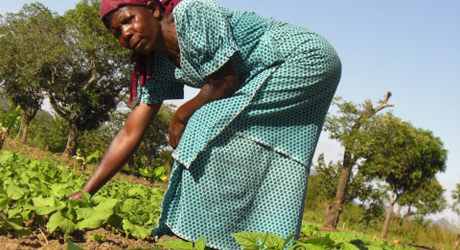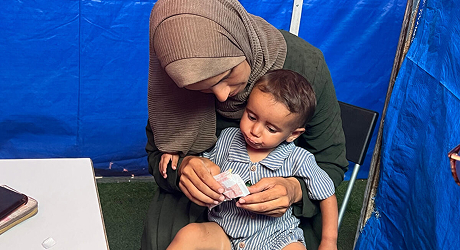Footprints Project
Since 2005, travelers like you have helped us change the world through micro-donations.

-
A total of
8210
Travelers
-
donated
$20001.42
(100% funded) -
to help improve
Food Security
-
in
Zambia
Project Overview
Chadiza district’s population is largely dependent on subsistence agriculture based around maize cultivation, with some livestock grazing on common lands. Erratic rainfall, mono-cropping (maize), poor farming methods, inadequate household labour and a lack of agricultural inputs often result in household food shortage. The most food insecure households in project wards experienced an average of 4.6 months of food shortage between October 2008 and September 2009. Apart from eating fewer meals, affected households coped by eating wild fruits, asking for food from neighbours and extended family, engaging in day labour to acquire food, and in extreme cases, collecting chaff off local hammer mill floors.
Community consultation
Community surveys and verification exercises undertaken in September 2009 resulted in the identification of 150 of the most food insecure households in Naviruli, Chilenga and Nsadzu wards. Project staff and implementing partners conducted further consultations with selected households to finalise training and input requirements. This allowed Plan Zambia project staff, together with Heifer International and Ministry of Agriculture and Cooperatives (MACO) personnel to develop tailored support packages that reflect the needs and capacities of the most food insecure households or household groups across project wards.

Plan Zambia project staff and community verification team members review household survey forms. Verification processes helped to identify the most food insecure households in project areas.
Support & training
Support packages include a mix of community-based training and ongoing mentoring in sustainable farming methods and small livestock-keeping. Plan Zambia will also provide tailored inputs that are in line with household situations and local options, including horticultural and field crop seed, foot-powered irrigation equipment and goats. Heifer International will train selected households in small livestock-rearing and provide ongoing mentoring to support animal health and goat reproduction.
During the reporting period, MACO staff provided additional training to agricultural extension volunteers at the ward level who have since commenced farmer trainings with project households. Project inputs and seeds have all been procured and will be distributed once farmer trainings conclude.

Foot-powered irrigation pumps being unloaded at the Farmers Training Centre in Chadiza Town. Also called ‘treadle pumps’, they are light weight, mobile, completely manual and can draw water from a depth of 7 metres. Pump kits include hoses, simple user manuals and replaceable piston rubber cups.
Future of the Project
Plan Zambia, MACO and Heifer International staff will complete all trainings and provision of tailored inputs to project households. Trainings and inputs will support:
- Field crop production, including drought resistant crops
- Off-season production of vegetables, fruit and beans, and
- Small livestock rearing.
Households unable to adequately capitalise on these supports will be linked with local community-based organisations engaged in livelihoods and home-based care. Community members, MACO, Heifer and Plan Zambia/Australia will undertake follow-up surveys and interviews with project households ahead of a stakeholder reflection workshop to be held in August 2010.
Reporting Period
This report covers the period from October 2009 to March 2010. A follow-up report in September 2010 will provide further insight into how Footprints funds have Improved the food security amongst the poorest families in Zambia.
Traveling soon? When you buy travel insurance with us, you can make a contribution towards a cause you care about.
Get a quote


